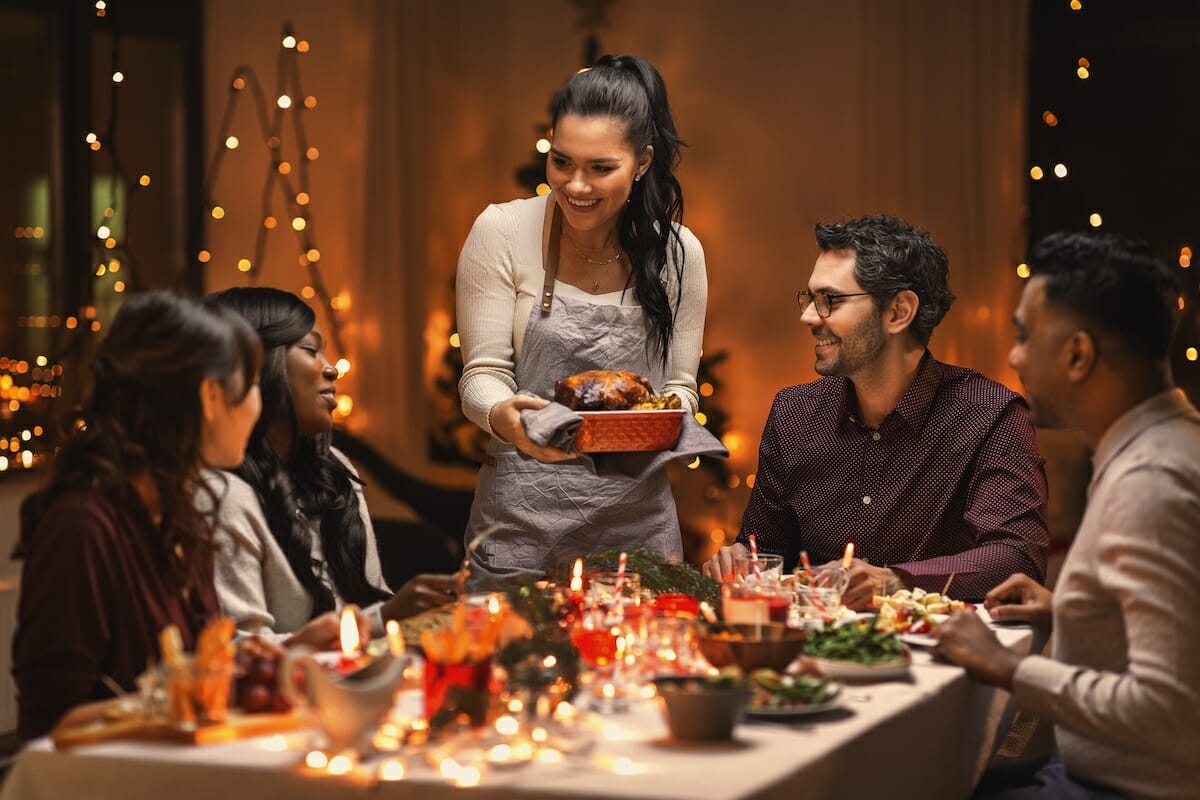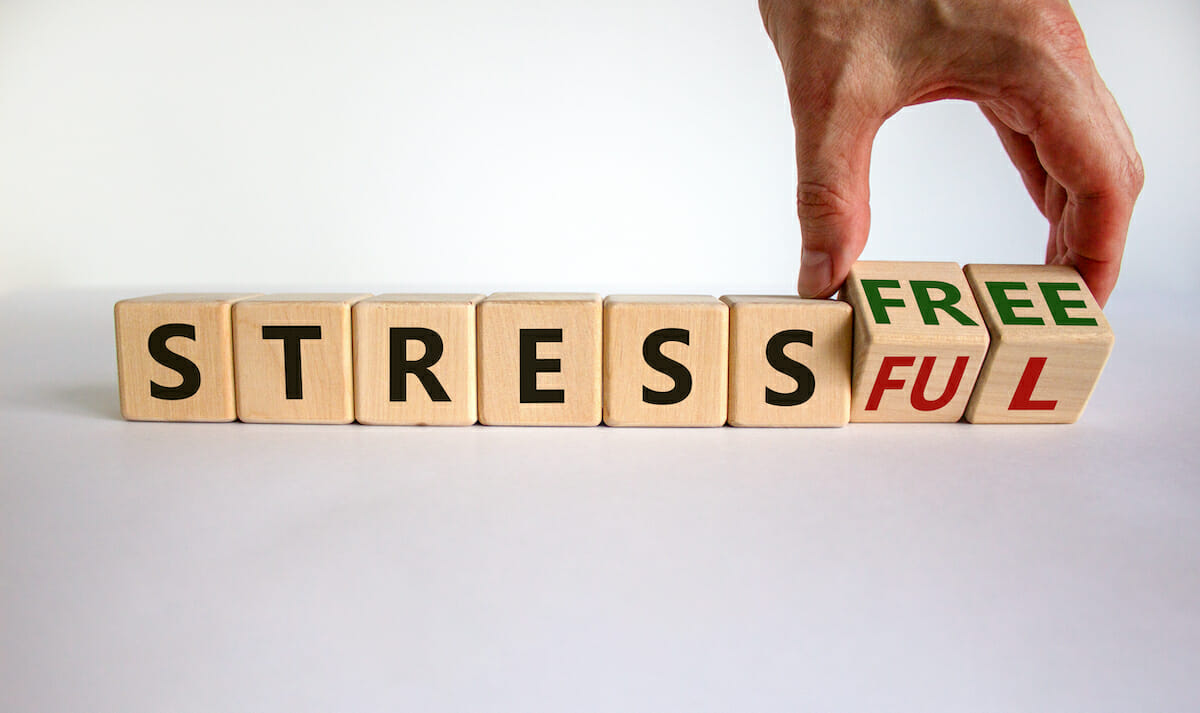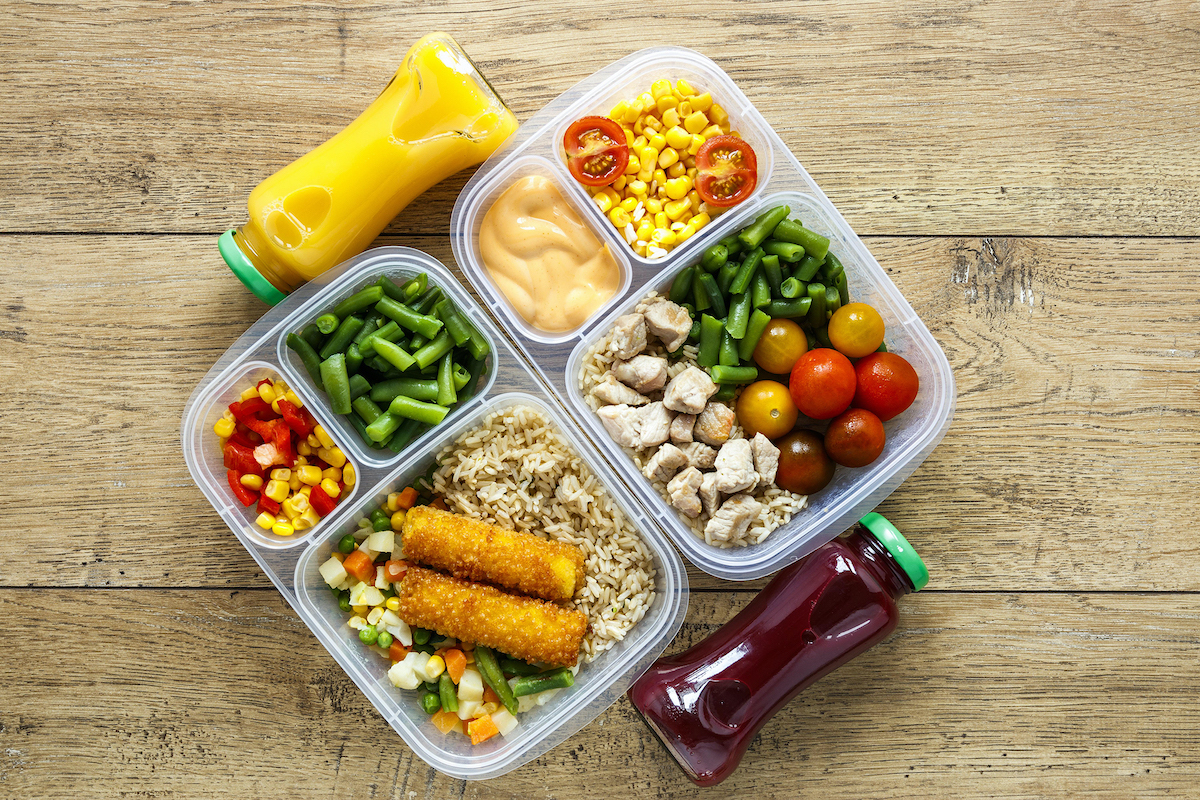he holidays can be a stressful time, especially if you have food allergies. You may feel pressure to eat at parties or big family meals, where cross-contact may pose a risk to your safety. You may also feel left-out when everyone else enjoys a holiday treat that you have to turn down. But don’t despair! With proper planning and a positive outlook, you can still enjoy the holiday season.
Plan ahead.
The holidays are a busy time of year for many people – but you always know when they are coming. Plan for holiday meals and parties by talking with hosts or holding your own seasonal events. Stock your pantry with easy-to-pack snacks and allergy-safe favorites and set realistic expectations for how much feasting you may be able to do. And remember, allergies won’t stop you from enjoying the wonderful sights, sounds, and friendships around you!
Offer to host.
Hosting a big family meal or holiday party is a lot of work—but for some people with food allergies, it is worth the effort. It gives you more control over the environment and the food served, allowing you to feel safe and enjoy yourself at the event.
To prepare allergy-safe food, always:
Read the ingredient list of every product used. It is important to check the ingredient list every time you purchase or use a product, since its contents and manufacturing processes can change without notice. Avoid anything that lists your allergy triggers (allergens) in the ingredient list or a “may contain”-style warning.
Take steps to avoid cross-contact (also known as cross-contamination). Cross-contact can happen when small but dangerous amounts of allergen are moved from one place to another, contaminating otherwise allergy-safe foods. If you are preparing both allergenic and allergy-safe foods, you should prepare and serve the allergy-safe foods first, using a clean set of utensils. You should also wash your hands, countertops, and tabletop before and after cooking, serving, or eating any food.
Share these rules with guests. If any of your guests offer to bring food or beverages, ask them to follow the rules above to keep their contributions allergy-safe. You can also politely decline their offer.
Call ahead.
If someone else invites you to a meal or party at their home, call them well in advance to discuss your allergies.
Remember to:
Tell them about your allergies and how to keep you safe. Some people may not realize that even a small amount of allergen can trigger an allergic reaction. They may not be used to reading ingredient lists or taking steps to avoid cross-contact. Teach them what they need to know and do, in order to prepare safe food for you.
Provide suggestions. If you have a favorite brand of allergy-safe products or a list of recipe substitutions, share them with your host. This will make their job much easier. You may also feel more comfortable when you see a familiar food option served.
Offer to bring allergy-safe food options. Your host may appreciate the help! Offer to bring something that compliments the rest of the meal, so you can share it with other guests after serving your own allergy-safe portion. This will allow you the pleasure of eating with others, while staying safe.
These rules still apply if you are meeting family, friends, or coworkers at a restaurant or catered event. Call the restaurant or caterers beforehand to talk about the event and your allergies.
Arrive prepared.
Even the best-laid plans can go awry. Sometimes, you call ahead only to find that your host has misunderstood or forgotten what you told them.
To prepare for that possibility:
Enjoy a light meal or hearty snack beforehand. This will help sustain you, even if you find there are few allergy-safe foods at the event.
Pack a snack. Slip a couple of allergy-safe snack bars or a piece of fruit into your pocket or purse, in case you need something to nibble on.
Bring your epinephrine auto-injector. People with severe food allergies should never eat without an epinephrine auto-injector (ie., epi-pen) on hand. Even if you feel comfortable with the food in front of you, accidents can happen.
Don’t hesitate to ask your host about ingredients or to read an ingredient list. If you feel less than confident about the food served, politely decline or avoid it and focus on the good company instead. You may feel a little awkward, but your health and safety are worth it.
Celebrate in other ways.
Food is a big part of the holiday season and many festivities around the world. However, eating isn’t the only way to spend quality time with family and friends.
If you would rather skip the risk and stress of holiday dining, invite your loved ones to celebrate the season in less food-focused ways. For example:
Propose an outing. Suggest a trip to your local ice skating rink, sledding hill, or hiking trail or buy tickets to a seasonal concert, play, or movie. Pack your own allergy-safe snacks to enjoy.
Get crafty. Tap into your artistic side and gather your friends and family for an afternoon of cutting, gluing, and sewing festive decorations or other seasonal crafts.
Bust out the boards. Host a game night, inviting guests to bring their favorite board or card games, instead of food to share. Play seasonal music and stock up on holiday-themed prizes.
– excerpted from an article by the Healthline Editorial Team, http://www. healthline.com
Exclusive content from CARE magazine










